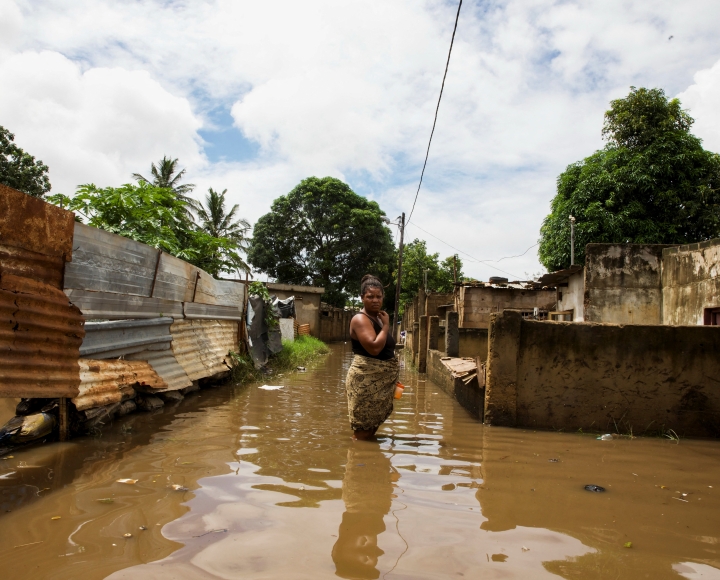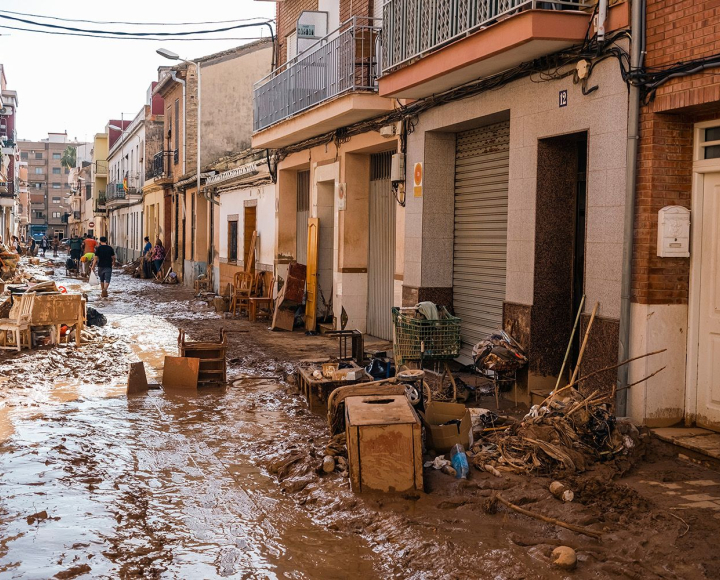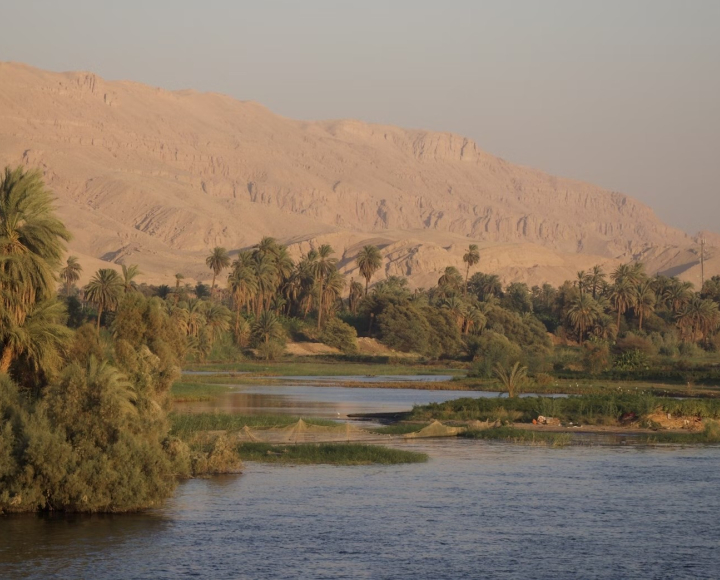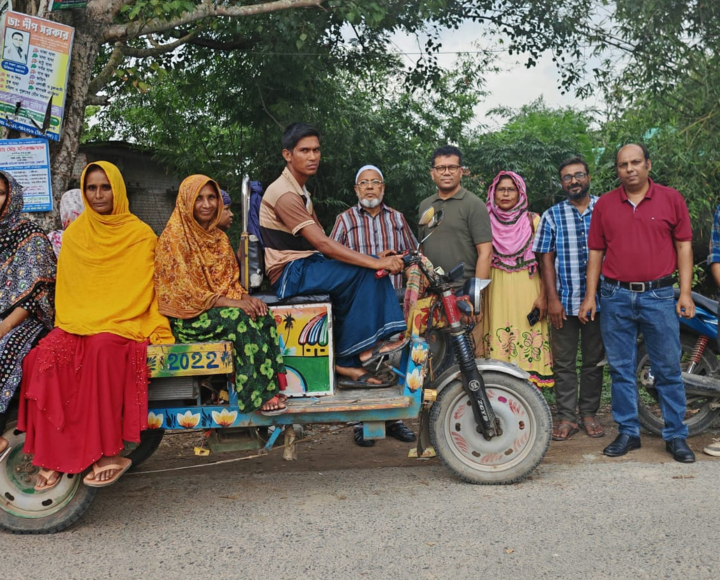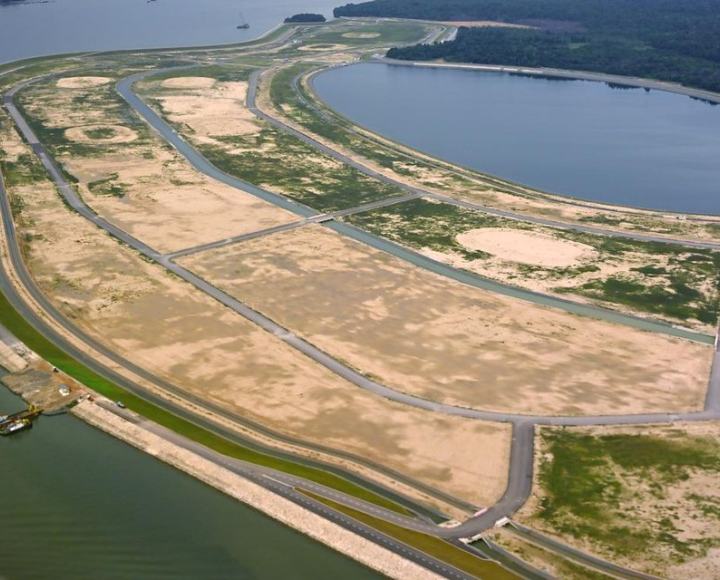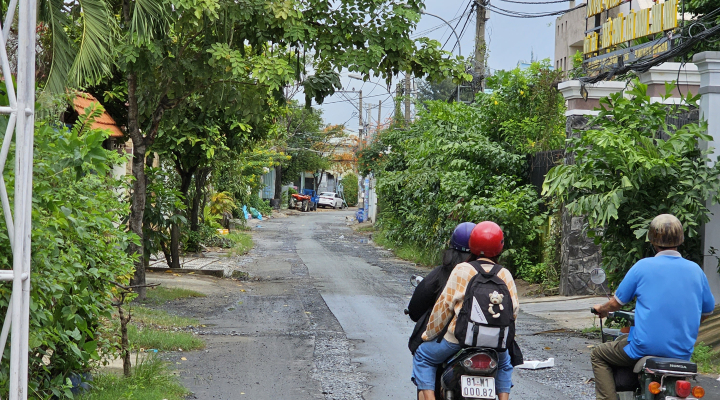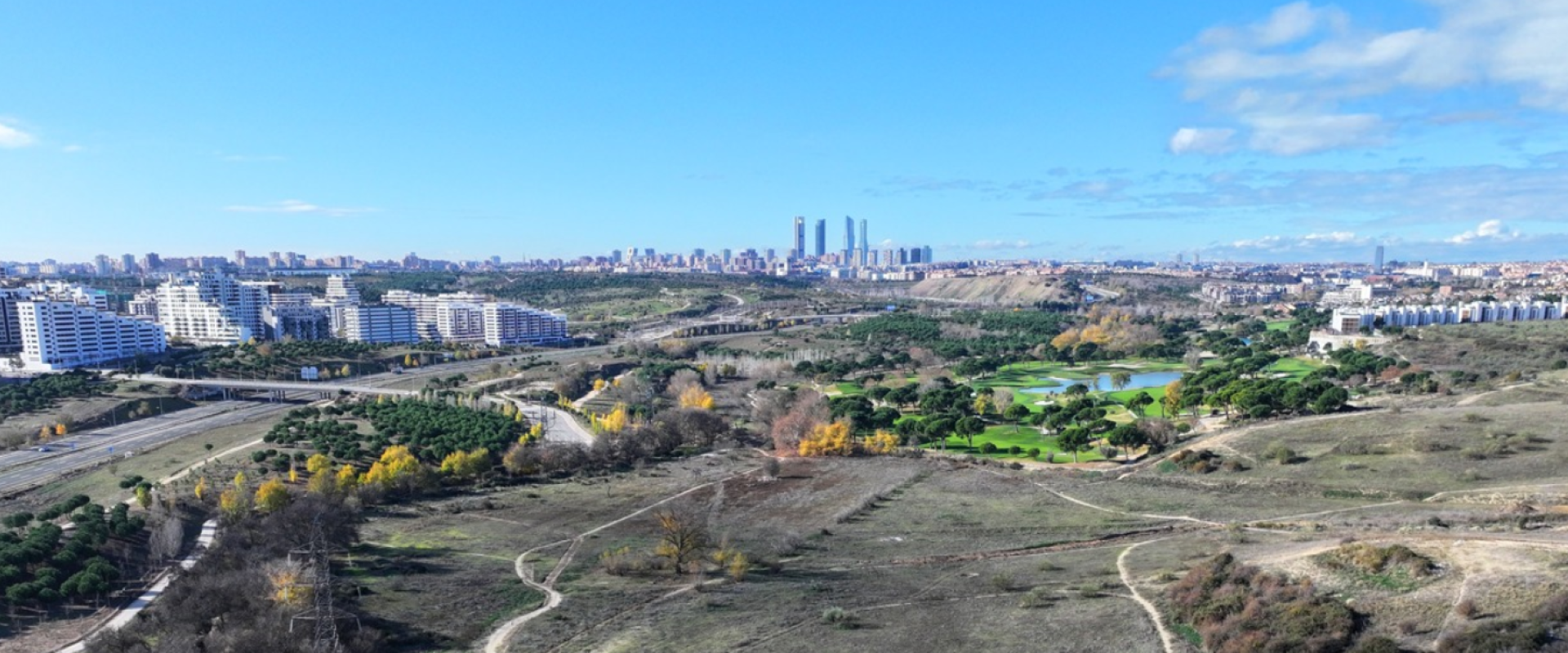
Microsoft and FieldFactors join forces to harness rainwater in Madrid
Microsoft is partnering with Dutch start-up FieldFactors to replenish a natural stream using rainwater collected from a major new urban development.
The Solana de Valdebebas project spans over one million square meters and will include nearly 1,400 homes. The initiative has the capacity to collect up to 200 million litres of rainwater annually, which will be directed back into the Valdebebas stream, a tributary of the Jarama River.
Rainwater will be collected using FieldFactors' sustainable drainage system BlueBloqs, which can capture up to 95% of rainfall where it falls. The collected water is then treated using the solution’s advanced biofiltration technology to high standards before being returned to the Valdebebas stream. This contributes to restore both the water quality and the water supply of Madrid’s urban waterways.
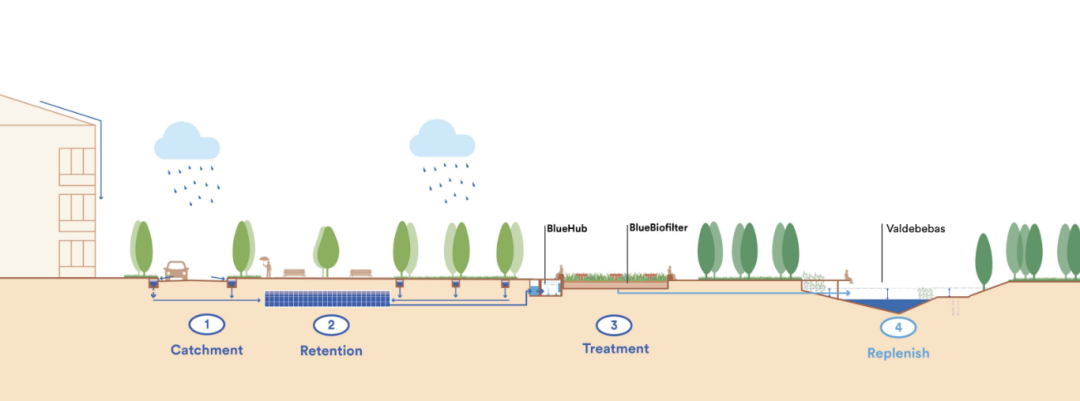
Smart rainwater management
“Urbanisation can result in water loss, if it stops the water reaching its natural destinations,” said Karina Peña, co-founder and CEO of FieldFactors. “But every drop counts if you capture and store it. Rather than discharging stormwater into the sewer, our approach focuses on locally capturing, treating, and storing rainwater, for reuse or to return to natural bodies of water. This safeguards cities from flooding and heat stress, conserves freshwater resources, strengthens water resilience, and encourages biodiversity.”
Water quality is continuously monitored by BlueBloqs and compared to regulatory requirements. This not only guarantees compliance but also provides valuable data for further analysis.
“This project is highly valuable for the city of Madrid as it enables testing of the quality required by the Tagus River Basin Authority, conducting analyses, and obtaining discharge parameters over an extended period of ten years,” says Manuel de Pazos Liaño, Deputy Director General of Urbanisation Control for the City of Madrid. “From this data collection, conclusions can be drawn that may be applied to designs implemented in other urban areas such as Operation Camp and Madrid Nuevo Norte.”
Eduardo Campo, Social Director at project developer Decus Gestión de Proyectos, also sees potential: “In the medium and long term, this project has the potential to become a replicable model for other urban areas in Madrid, integrating nature-based solutions for water management. The implementation of FieldFactors’ technology in Solana demonstrates how collaboration between the public and private sectors and experts in sustainable solutions can generate positive impacts both at an environmental level and in urban planning.”
Rainwater as a lifesaver
As cities grow, the risk of flooding increases. According to a 2020 report by Johns Hopkins University, every 1% increase in impervious surfaces such as roads and parking lots leads to an average of 3.3% more flooding per year.
To combat this, Microsoft is collaborating with the G-Aqua Research Group from the Universidad Politécnica de Madrid (UPM). This group helps in the design of the stormwater harvesting and nature-based treatment strategy, as well as monitoring the water quality results. Professor Daphne Hermosilla, project leader at UPM, highlights the importance of such projects: “By removing pollutants from harvested stormwater it can help to promote water reuse applications and replenish natural surface water resources and surrounding ecosystems. This type of project, funded by the Microsoft water replenishment initiative, pushes Madrid towards a more sustainable urban water management practice.”
Microsoft aims to be water-positive by 2030, meaning the company will give back more water to nature than it consumes. Eliza Roberts, Water Lead at Microsoft, says: “Part of our strategy is to replenish water sources and drive innovation to scale water solutions. By collaborating with FieldFactors, the project will help to capture water where it falls in the Solana de Valdebebas urban development and redirect it to the local Valdebebas stream.”
Success in the Netherlands and Spain
The BlueBloqs technology has already proven successful in multiple locations in the Netherlands and Spain. A notable example is the Sparta stadium in Rotterdam, where FieldFactors installed an Urban Water Buffer to reduce flooding from the hard surface surrounding the stadium. The system can capture up to 20,000 cubic meters of rainwater and filters pollutants such as iron, polycyclic aromatic hydrocarbons, and nutrients. The purified water is then used for field irrigation, saving 15 million litres of drinking water annually.
In Madrid, the BlueBloqs Loop system has been successfully implemented at the iconic Torre Caleido skyscraper development. Situated within Caleido Park, a new public space designed as a benchmark for innovation, sustainability, and recreation, the system treats rainwater runoff from both green and paved surfaces. The treated water is then used to supply an architectural pond, eliminating the need for potable water. This closed-loop system, integrated into the design of the park, continuously circulates the water through a BlueBiofilter, which serves both as an ornamental feature and a retention pond for rainwater.




